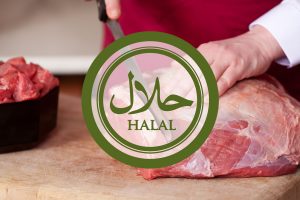Borneo Bulletin Writer Apr 10th, 2010
THE halal market is a trillion dollar multi-segmented industry, which should be explored by Bruneian entrepreneurs. To encourage wider knowledge and understanding of the market dynamics of the halal market and Brunei’s role in this trillion market industry, approximately 70 final year students from the Faculty of Business, Economics and Policy Studies who are taking Strategic Management and Strategic Public Management course listened to Mr Abdalhamid Evans, from Imarat Consultants talked on `The Halal Market and The Best Role for Brunei in the Halal Market’.
According to a press release, the lecture followed with an interactive question and answer session, where Mr Abdalhamid Evans discussed the importance of any country to position itself accordingly in the Halal market and undertake rigorous environmental scanning activities to identify what the competitors such as other Asean countries are doing to capitalise on the market opportunities.
He outlined that the Brunei Halal agenda is an economic driver of change, which will allow Bruneian Muslims to reaffirm their identities as well as achieving economic prosperity.
He explored the scope of this dynamic global market which was first driven by the need to have halal meat and poultry but which has grown exponentially into many industries. It is estimated that the halal food industry is worth US$641 billion annually.
The evolution of the halal market parameters has expanded into food manufacturing, food retailing, restaurant chains, food service industry, Islamic banking and finance, standards, auditing and certification of the halal industry, science and new technology, personal health care products, pharmaceuticals, lab testing, software applications-content providers, conferences and magazines, media, public relations, marketing, event management, training teaching and consulting.
The future growth direction of the halal market was explored as the rising numbers of halal consumers have increased. Halal is going mainstream and upstream and is going beyond the natural, organic, ethical, environmental and animal welfare protection concerns of consumers.
For Muslims, Halal is a lifestyle choice in popular culture where consumers have gone a `deep green’ where religion has a pivotal role to play beyond the ethical, moral and green issues.
As such, these drivers of change will lead to higher quality assurance systems, where the Muslim opinion will become more influential and greater worldwide availability and acceptance of the halal products.
He encouraged the future graduates to explore Brunei’s unique Halal value proposition and to seek ways on how they can mobilise to become competent entrepreneurs in the Halal market.



